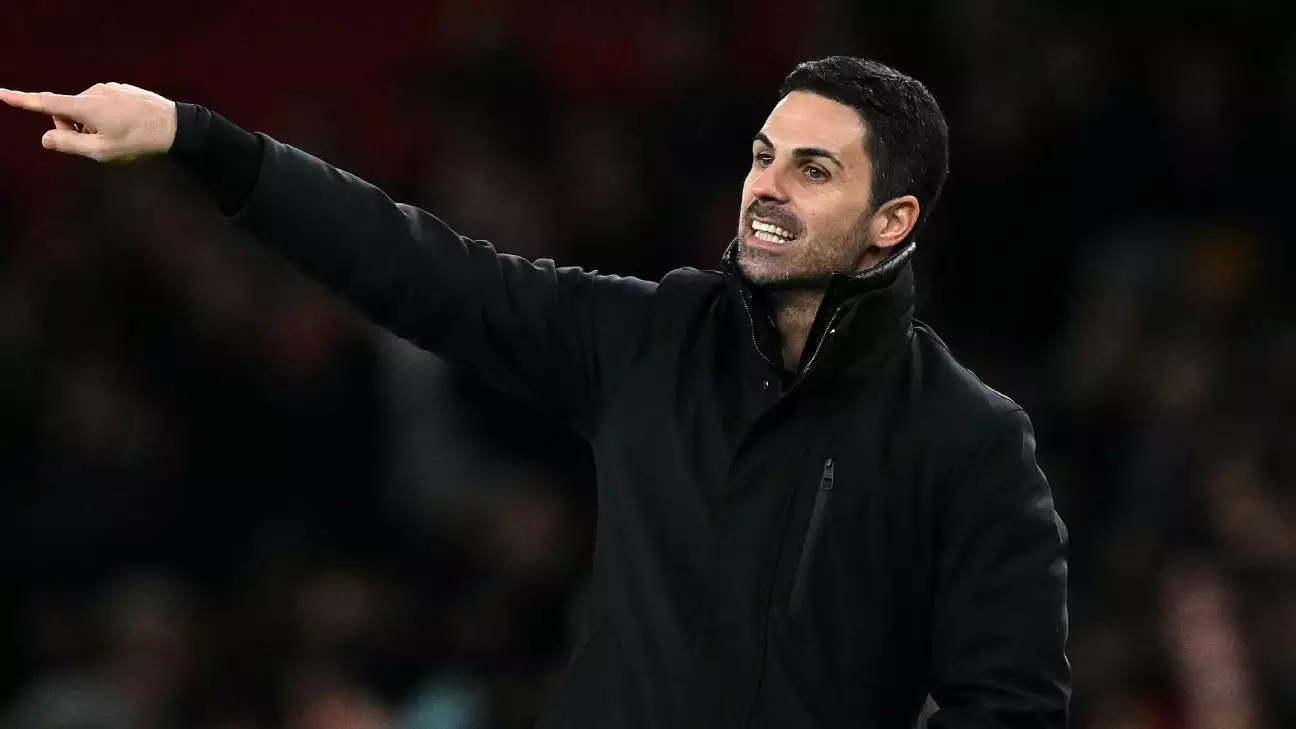Mikel Arteta’s Arsenal faced a formidable challenge during the first leg of the Carabao Cup semifinals against Newcastle United, suffering a disappointing 2-0 defeat. This match highlighted not only the Gunners’ inability to capitalize on opportunities but also raised questions about the psychological and technical adaptations required when facing different competition conditions. With goals from Alexander Isak and Anthony Gordon giving Newcastle a significant advantage ahead of the return fixture, the match illuminated key shortcomings in Arsenal’s approach.
Miscalculated Chances: A Statistical Overview
Despite the loss, Arsenal’s performance was marked by striking statistical disparities; they ended the match with an expected goals figure of 3.12— the highest this season for any Premier League team that failed to score. This statistic points to the underlying issues the team faced: a failure to convert opportunities into actual goals. This lack of clinical finishing, regardless of the chances created, speaks volumes about the need for psychological resilience among the squad. Arteta’s impending task is to address this mental block and find ways to return to form.
Arteta highlighted one unexpected challenge that may have played a role in his team’s struggle: the adaptation to the Carabao Cup ball. Unlike the familiar Nike ball used in Premier League matches, the Carabao Cup uses a different Puma Sphere, which Arteta described as having unpredictable flight and distinct grip. Adjusting to new equipment can seem trivial, but for professional athletes, such discrepancies can materially affect performance. Arteta’s acknowledgment of this issue reflects an understanding that these small details can impact a player’s confidence and the overall flow of the game.
Interestingly, Arteta’s concerns find roots in experiences from his past—a time when he was part of Manchester City’s coaching staff under Pep Guardiola. Guardiola had similarly critiqued the Mitre ball used in earlier cup matches, emphasizing the challenges posed by unreliable equipment. The common thread here is the necessity for teams to adapt not only strategically but also tactically to variables in their environment. It serves as a reminder that while technical prowess is crucial, adaptability is just as vital in high-stakes matches.
Moving Forward: Emphasizing Adaptation and Mental Toughness
As Arsenal prepares for the return leg on February 5, the focus should pivot from dwelling on the past to strategizing for a comeback. Arteta’s comments underline a path forward: emphasizing mental fortitude in addition to adapting to competition regulations. It is essential for both players and coaching staff to dissect performance with an eye toward improvement, recognizing that every match is an opportunity for learning. This will help cultivate a resilient squad, ready to tackle the nuances of varied competition formats.
In the end, the road to success in championships like the Carabao Cup cannot be solely paved by technical skill; it requires adaptability, mental strength, and a solid understanding of opposing challenges. This blend of characteristics will ultimately define Arsenal’s pursuit for titles in the seasons to come.


Leave a Reply